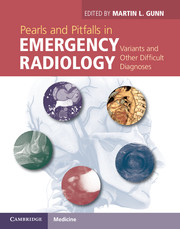Case 71 - Endometrial hypodensity simulating fluid
from Obstetrics and gynecology
Published online by Cambridge University Press: 05 March 2013
Summary
Imaging description
Although the imaging reference standard for the assessment of the endometrium is transvaginal sonography [1], CT is increasingly performed in patients for non-gynecologic reasons, and may reveal several endometrial abnormalities, including endometrial thickening, endometrial fluid, distortion of the endometrium by uterine masses, and intrauterine pregnancy.
In both premenopausal and postmenopausal women, the normal endometrium is hypodense compared to the enhancing myometrium, qualitatively resembling fluid (“pseudofluid”), but density measurements are often significantly greater than water [2]. The myometrium enhances rapidly in both the arterial and venous phases, in comparison to the endometrium, which enhances much more slowly and less vigorously (Figure 71.1) [3, 4]. Four types of normal myometrial enhancement have been described, with subendometrial uterine enhancement predominating in the premenopausal age group [3, 4]. The cervix also often demonstrates delayed and reduced enhancement in comparison with the body of the uterus and may have a low-attenuation appearance, simulating cervical carcinoma [4].
Information
- Type
- Chapter
- Information
- Pearls and Pitfalls in Emergency RadiologyVariants and Other Difficult Diagnoses, pp. 237 - 243Publisher: Cambridge University PressPrint publication year: 2013
